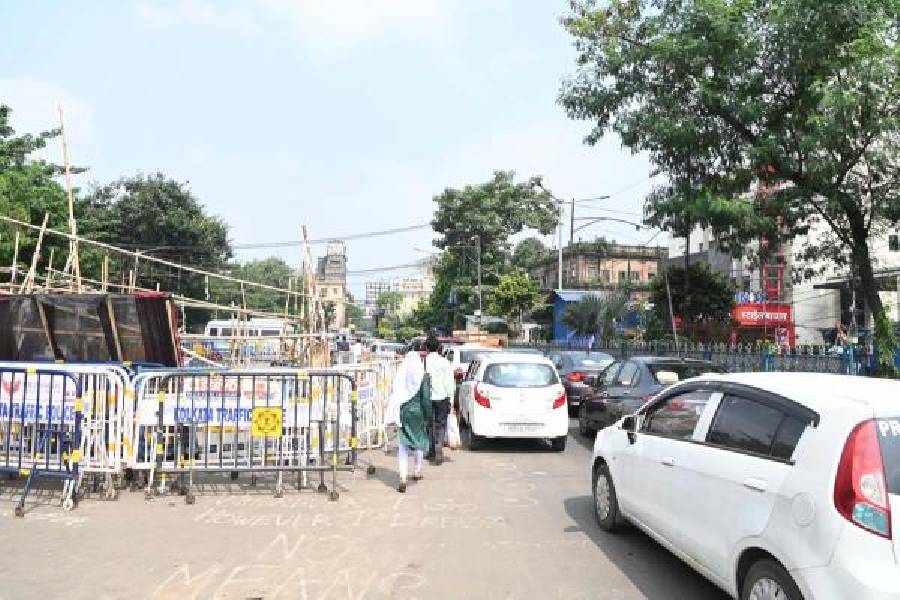The Bengal chief secretary sent an email to the junior doctors around 3pm on Tuesday, as promised, informing them that the state-level task force to ensure their security at workplaces and improvement of the healthcare system has been set up, an official said.
The minutes of the meeting held on Monday were attached with the email.
The junior doctors were in a meeting till late on Tuesday to discuss the email from chief secretary Manoj Pant.
More than one junior doctor said they were expecting a set of government directives or a government order regarding the formation of the state-level task force and college-level stakeholders’ committees.
A senior government official said: “The order was issued within the deadline mentioned by the chief minister. Though live telecast of the meeting was allowed on Monday, we sent the minutes of the meeting to the junior doctors to make it clear that we are transparent on all issues.”
The official said they felt “that such a large issue” might not be resolved in a few meetings. “The chief minister and the entire administration are eager to resolve all the issues that could leave an impact on medical education,” he said.
Rumelika Kumar, a postgraduate trainee at the All India Institute of Hygiene and Public Health and one of the doctors who were on a fast unto death, said it was not clear to them whether the order for the state-level task force had already been issued or they were only sent a copy of the minutes of the meeting.
“We hope that as the meeting was live-streamed and the minutes of the meeting have been sent, a written government directive would follow. If indeed the order is out, then we are not yet aware of it. Moreover, it is not too clear to us about how we are to choose two junior residents, two senior residents and a woman student who will join the task force as members. This needs to be discussed at length,” Kumar said.
The “Record of Discussion” has nine points, which were among the several issues discussed at the meeting the junior doctors held with the chief minister.
The doctors on several occasions during Monday’s meeting had pressed for the record or the minutes to be sent to them.
They had also asked for a government directive and an order pertaining to the decisions taken at the meeting on the formation of the state-level task force and college-level stakeholders committees, among others.
As for the state-level task force, Tuesday’s document reads: “Regarding State Task Force, it was decided that 1 (one) representative from State Grievance Redressal Committee, 2 (two) representatives of Junior Residents, 2 (two) representatives of Senior Residents and 1 (one) female representative of the students will be included therein. State Task Force will meet on monthly basis as far as possible. It was decided that important issues requiring immediate attention can be taken up in the meetings of State Task Force. A ToR of the State Task Force will also be communicated.”
ToR is an abbreviation of the terms of reference that define the structure and purpose of a committee or a task force.
The records of the discussion further states that the college-level stakeholders committees will include one junior resident, one senior resident and a student. The committee will monitor infrastructure, including those related to safety and security in government medical colleges.
The document also outlines that student union elections will be held by March 2025. The anti-ragging and internal complaints committees will be made fully functional. Students’ representatives will be included on various panels after union elections are held.
The document also says the junior doctors can mail their feedback and suggestions regarding the pilot project of the central referral system and the digital bed vacancy monitoring system so they can be incorporated during the final roll-out across the state.
The document says all complaints and grievances at the government medical colleges would be probed by the principals and the inquiry reports, along with recommendations, have to be forwarded to the chief secretary through the health department for a “final decision in the matter after due diligence”.
The document lists various other issues that were discussed at the meeting.











